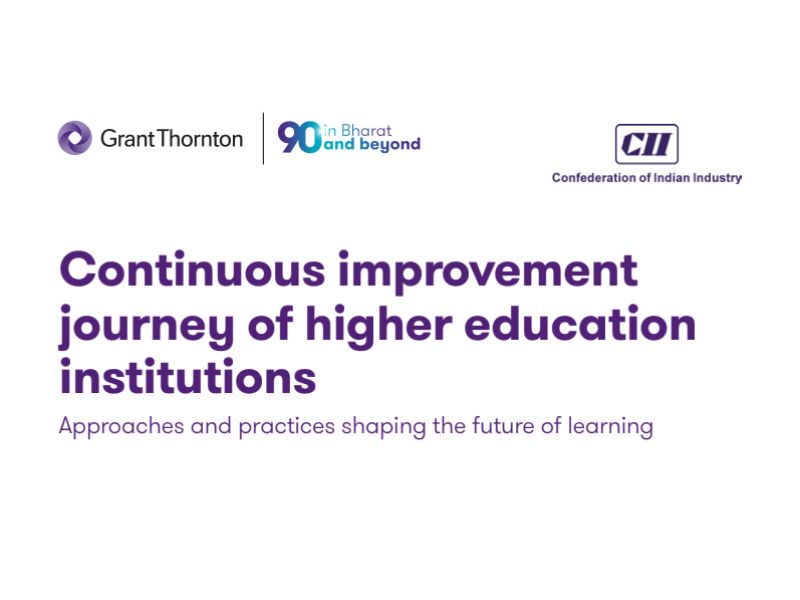No products in the cart.
Indian HEIs move toward employability-first learning models
Grant Thornton Bharat, in collaboration with the Confederation of Indian Industry (CII), has released a report titled “Continuous Improvement Journey of Higher Education Institutions: Approaches and Practices Shaping the Future of Learning” at the ISB Mohali campus.
The report highlights how the National Education Policy (NEP) 2020 is reshaping India’s higher education landscape, driving a shift towards outcome-based, technology-enabled and learner-centric models. With a target of achieving a 50 percent Gross Enrolment Ratio (GER) by 2035, the study notes that India will require 86.11 million enrolments—an 85 percent increase from current levels—necessitating a 5.3 percent annual growth in higher education capacity.
The findings draw from three roundtables involving over ten universities in northern India, supported by secondary research and analysis.
Ashok Varma, Partner and Education & Skill Development Expert at Grant Thornton Bharat, said, “India’s higher education ecosystem is entering a defining decade. The National Education Policy 2020 has set the course for transformation, but its success will depend on how quickly institutions adapt by embedding innovation, agility, and human-centricity into their DNA.”
Key takeaways from the report include:
- Cross-learning and innovative pedagogy: Institutions such as IIT Mandi, BITS Pilani, Manav Rachna International Institute of Research and Studies, and Lovely Professional University are implementing AI-driven personalised learning, challenge-based assessment, and cross-sector partnerships to align with NEP-driven frameworks.
- Skill assessment and employability readiness: With nearly 40 percent of job skills expected to evolve by 2030, institutions are integrating micro-credentials, modular credits, and work-integrated learning. Initiatives by BITS Pilani, DIT University, MRIIRS, and Pearson India highlight academia–industry collaboration to enhance employability.
- Preparedness of future-ready HEIs: Universities including Panjab University, Chitkara University, and DIT University are adopting frameworks focused on academic flexibility, stakeholder engagement, and technology integration, including the ethical use of AI.
The report concludes that transforming higher education is now an operational imperative rather than a policy aspiration. As institutions advance on their continuous improvement journey, the focus is expanding from access to scale, quality, and employability—key drivers in achieving the vision of Viksit Bharat.
Also Read: India set to unlock USD 1 trillion maritime opportunity by 2047, says CMEC–RIS report















Add comment